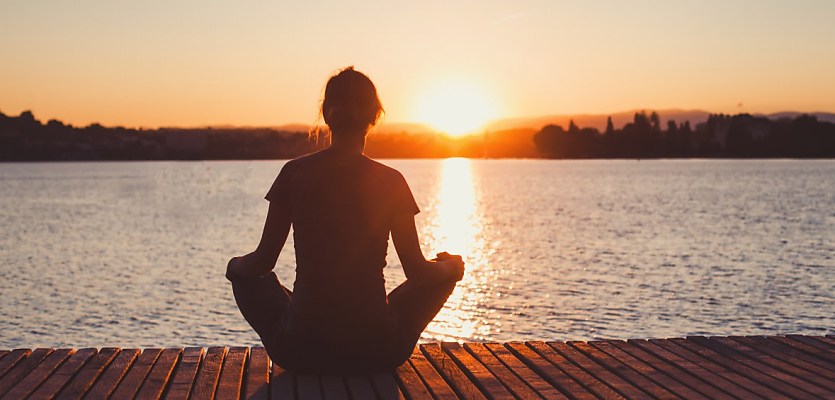In a frantically paced modern society, stillness and tranquillity can be hard to come by, however, two mindfulness practitioners have revealed alternative ways to incorporate the art of meditation into your life.
Meditation has existed for thousands of years and is defined by the Cambridge dictionary as “the act of giving your attention to only one thing, either as a religious activity or as a way of becoming calm and relaxed.” Oftentimes, the deeply mindful practice can be misconstrued as having one true route to fulfilment.
Speaking to The Guardian’s Amy Fleming recently, mindfulness practitioner and the author of Meditation Illuminated: Simple Ways to Manage Your Busy Mind, Joy Rains and psychologist Suzy Reading revealed there are multiple ways to enter “the here and now” induced by a meditative state without embarking on traditional meditation practices.
They posited the practice of meditation is an antibody to 21st-century life and boasts a wide range of benefits, including improved concentration, memory and self-awareness while concurrently reducing anxiety, depression, and stress.
Ms Rains explained, “The whole idea with mindfulness is training your brain.” She added, “You can do this just as well by being intentionally mindful throughout the day. I don’t think there’s a right or wrong way, and it’s important to do practices that resonate with you.”
Ms Reading added traditional meditation practices “are inaccessible for a lot of people. But that’s not to say that meditation is not for them.”
Here are Ms Rains and Ms Reading’s alternatives to traditional meditation:
Walking
Prominent Buddhist monk Thich Nhat Hanh was a major believer in the power of walking meditation, once describing it as a “profound and pleasurable way to deepen our connection with our mind and body.”
From a similar school of thought, Ms Rains recommends walking mindfulness because “when we’re walking, we’re not doing much else other than maybe being caught up in our stuff. That’s a great time to bring awareness, instead, to your feet as they connect with the ground.”
Being awed by nature
Ms Reading explained that “there is a lot of research around awe and we can experience its blissful sense of transcendent connection in as little as 15 seconds.”
She described it as “an incredible mood booster.” Ms Reading said such actions don’t need to be undertaken in a national park, they can simply look up and marvel at the sky, or even look at art or watch a great performance.
All of these can “anchor us in a sense of being part of something bigger than ourselves.”
Drawing
Ms Rains said such activities can be “relaxing and restorative” because of the engagement they offer.
“You can really flow in the moment… and your attention is here and now.”
Housework
A surprise entry on the list, yet Ms Rains insists, “Folding the washing can be a form of meditation.” She added, “You can turn just about any activity into a meditative pursuit by really listening to your senses.”
Trying new things
Ms Reading argued that meditation and rest are “movement.” Adding they can be “connection, it can be something that is a little bit mentally stretchy.” She said this could include cooking a new dish or learning a new creative skill.
Building on this, Ms Rains said partaking in a challenging activity that removes us from our comfort zone can “enlighten us, because it is using our brain in a different way.”
“I think that will surprise people because most people would associate meditation and rest with switching off,” she said.
Staring out the window
Trying to clear the mind can, at times, make it even louder. Staring out the window and taking notice of objects around us, rather than aiming to completely cool the mind, can remove us from the frantic mind traffic.
“There is no such thing as bad meditation,” Ms Rains said. “If you’ve noticed that your mind has gone elsewhere, that’s all part of it.”
Writing
“Meditation can be reflective writing, sitting with our feelings,” professes Ms Reading. Adding to this, Ms Rains said individuals need to remove judgements that often creep into their writing and “write what’s true in the here and now, without getting distracted by other tasks that need to be done.”
Working
Finally, meditation doesn’t always need to be relaxing, with Ms Rains outlining that “focusing on the non-pleasurable can help to reduce stress too.”







You are not authorised to post comments.
Comments will undergo moderation before they get published.